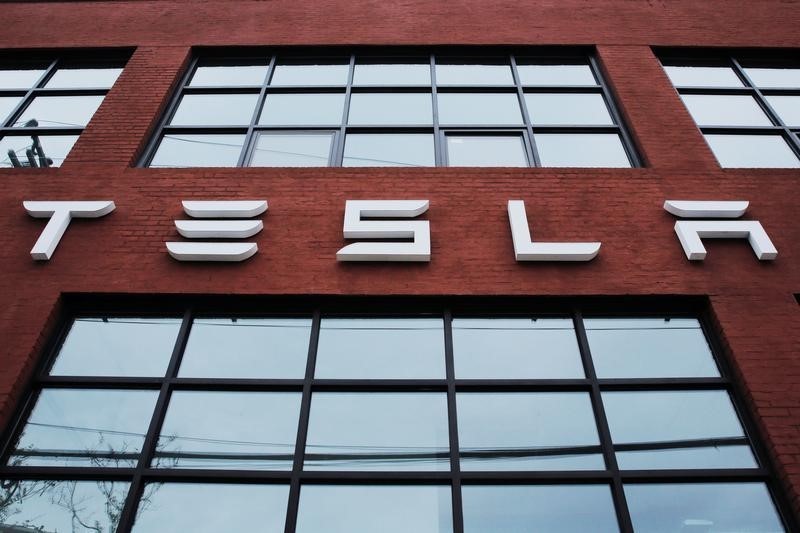(Bloomberg) -- Tesla (NASDAQ:TSLA) Inc. fans are hard to shake.
The electric-vehicle maker’s stock is set to post its worst first half ever with a 35% plunge that eclipses the S&P 500 Index’s 20% decline. But rather than the selloff dimming Tesla’s allure to Wall Street, analysts and investors say wiping out $350 billion in market value presents a buying opportunity.
“Six months ago Tesla was priced for perfection, but now it looks like a very attractive entry point for long-term investors,” said Robert Schein, chief investment officer at Blanke Schein Wealth Management.
The Elon Musk-led company is struggling with supply-chain shortages and soaring raw-material costs, like the rest of the auto industry. Then there’s the specter of a slowing global economy, which is troubling to companies like Tesla that need growth.
“Tesla is not immune to everything that is going on in the macro,” said Gene Munster, a former technology analyst who’s now a managing partner at venture-capital firm Loup Ventures.
But it’s Musk’s highly public pursuit of social-media platform Twitter (NYSE:TWTR) that has added a distinct wrinkle to Tesla’s situation. The stock is down 37% since April 4, when Musk reported that he had a taken 9.2% stake in Twitter, becoming the company’s biggest shareholder, a week after he dropped hints about his desire to shake up the social media industry. He subsequently agreed to purchase Twitter for $54.20 a share, but the two sides have been haggling since then.
Tesla is currently trading for less than $700, as some investors are worried about the Twitter bid distracting Musk. But Schein is optimistic that it will approach $1,000 over the next 12 months as supply troubles ease, the company continues to improve its balance sheet and the Musk-Twitter takeover saga comes to a close -- one way or the other.
Despite all that, Tesla’s stock price has held up better than those of traditional carmakers General Motors Co (NYSE:GM)., which is down 43% in 2022, and Ford Motor (NYSE:F) Co., which has fallen 45%. Tesla shares now trade at about 59-times forward earnings, near their lowest level since mid-2020. For GM, that number is around five times, and for Ford, about six. And Tesla’s lead in making and selling electric cars suggests it will continue to command significant market share even as more competition emerges, investors said.
Tesla’s attraction for long-term investors goes beyond EVs, Munster said. It also lies in the company’s exposure to several new technologies, including its solar roof tiles and the Optimus robot.
“There is probably a one-in-ten chance that Optimus works,” Munster said. “But if it does, it will be significant. And Ford or GM are not doing that.”
Still, investing in Tesla is not for everyone, given its dizzying volatility. And that turbulence isn’t going anywhere, at least in the short term, especially as a global recession weighs on consumers.
Tesla’s second-quarter delivery numbers, due later this week, may add to that tumult, as production during the past three months was severely disrupted due to multiple Covid-related shutdowns in China. Wall Street analysts’ average estimate for total deliveries during this period has come down 18% since March end.
“The stock is down by over a third, and because of its extreme valuation at 14-times trailing revenue, no one knows whether to buy more or sell altogether,” said Catherine Faddis, chief investment officer of Grace Capital.
Given the massive wipeout, Faddis said the stock may be near a “buy.” But it’s Musk, with his Donald Trump-style tweeting habit, who remains the wild card for investors.
“If he doesn’t do or say anything completely irrational, the stock will probably be less volatile,” Faddis said.
©2022 Bloomberg L.P.
